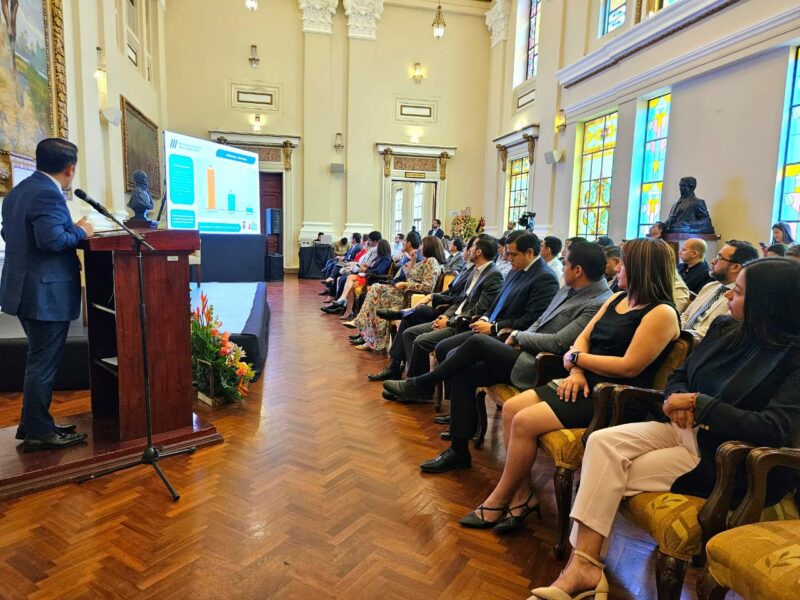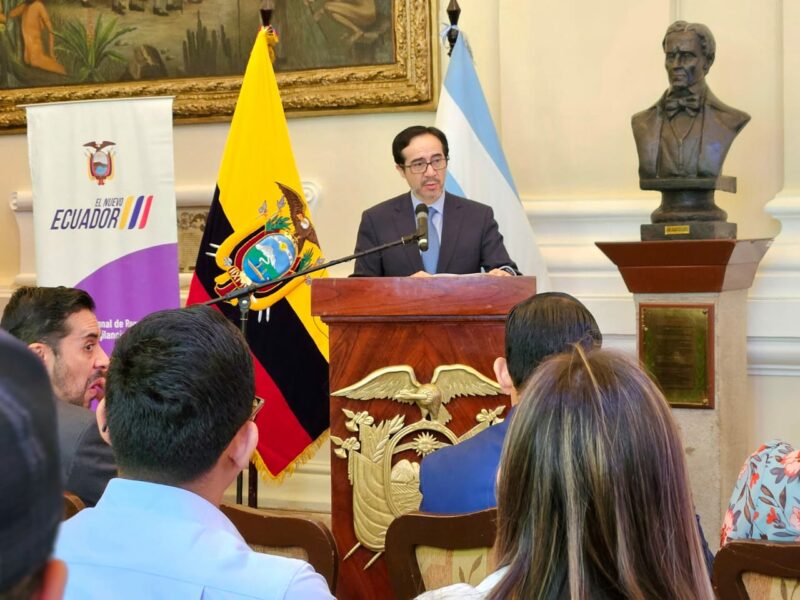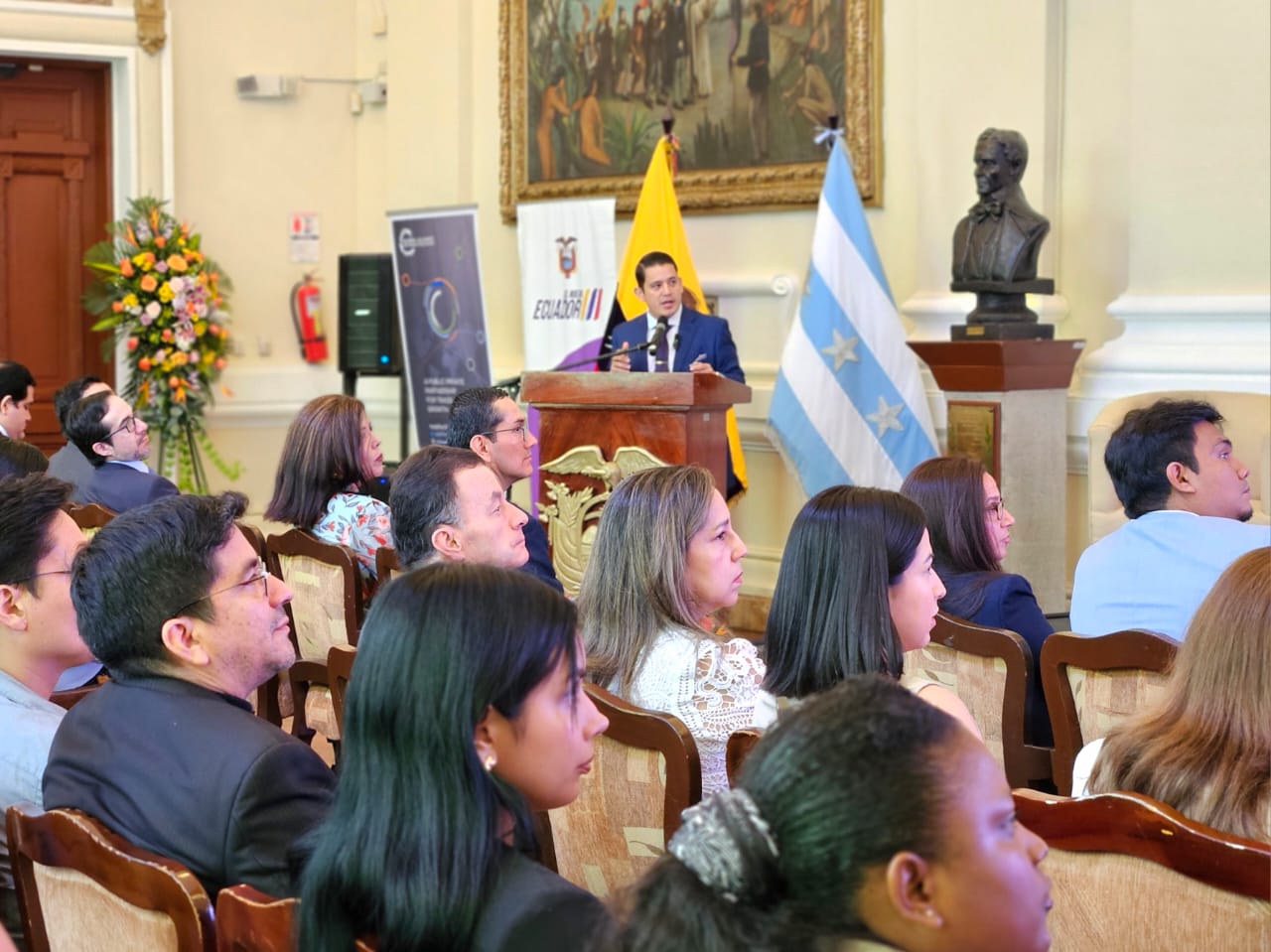Government, business and industry experts in Ecuador have welcomed the successful launch of a new enterprise resource planning (ERP) system for the country’s National Agency for Regulation, Control and Health Surveillance (ARCSA), and the integration of 11 new and four enhanced trade e-services into the National Single Window (VUE).
Addressing dignitaries at an official event to mark completion held in Guayaquil, Ecuador’s biggest city and main port, Foreign Trade Vice-Minister, Homero Larrea, said these initiatives had the potential to reshape the country’s entire trade ecosystem.
Vice-Minister Larrea said: “The use of technology in foreign trade has been a vital element in the creation of new business opportunities for the private sector … and it improves management and distribution of public resources in control tasks.”
Among the attendees, Luis Alberto Jaramillo, Director General of Customs; Daniel Sanchez, Executive Director of ARCSA; Jose Antonio Hidalgo, Vice-President of the Ecuadorian Business Council; Isabel Vera, Operations Supervisor at Torres & Torres brokers; Marcos Guerra, Exports Chief at Jasafrut; and Ericka Von Schoettler, Regulatory Affairs Coordinator at Linde, took part in a panel discussion on the benefits these digitalisation initiatives would bring and on future priorities.
ARCSA’s new ERP system integrates and manages various core business processes and is designed to improve the quality and efficiency of its wide range of services. Digitalising more than 376 procedures improves traceability, productivity, and transparency. It is also expected to slash processing times and eliminate application backlogs, potentially benefitting over 50,000 annual foreign trade transactions.
 ARCSA has a broad remit, including regulatory oversight of processed foods and additives, medicines and medical devices, pesticides, cosmetics and hygiene goods, among many other products manufactured in Ecuador or imported from overseas.
ARCSA has a broad remit, including regulatory oversight of processed foods and additives, medicines and medical devices, pesticides, cosmetics and hygiene goods, among many other products manufactured in Ecuador or imported from overseas.
Upgrading ARCSA’s IT infrastructure and developing cutting-edge software represents an investment of almost US$ 1.25 million. Led by the Global Alliance for Trade Facilitation, the successful implementation of the new platform replaces outdated systems, streamlining procedures and boosting efficiency for government, businesses, and ultimately consumers.
Separately, but concurrently, the Alliance partnered with Customs and five other border agencies to expand VUE, accelerating trade by reducing average processing times by 59%. As a result, procedures formerly taking 2-16 days can now be completed in 0.5-3 days.
The Alliance’s public-private partnership approach to trade facilitation has also created powerful momentum towards possible future collaborations. Actively involving the private sector ensures that the new systems and e-services directly address the needs of the business community.
Ivan Ortiz, Vice-President of the American Chamber of Commerce, reaffirmed the organisation’s “willingness to work with the Government to achieve the common goal of economic growth,” saying that it would motivate “other private organisations to engage and replicate the Alliance’s public-private collaboration methodology”.

